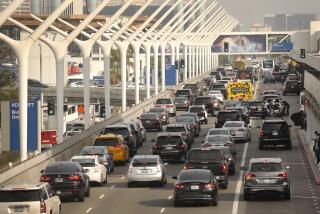Taxi drivers picket at LAX, asking city officials to reinstate curbside pickups

Hundreds of taxi drivers held a one-day strike Monday at Los Angeles International Airport, demanding that city officials reinstate curbside passenger pickups at the nation’s second-busiest airport.
More than 200 drivers wearing their laminated city credentials marched around the 1.5-mile horseshoe in the central terminal area, holding signs and chanting: “What do we want? Curbside! When do we want it? Now!”
The airport’s decision to ban curbside pickups last year dealt another blow to taxi drivers who are struggling to make ends meet in an industry decimated by Uber and Lyft, drivers said.
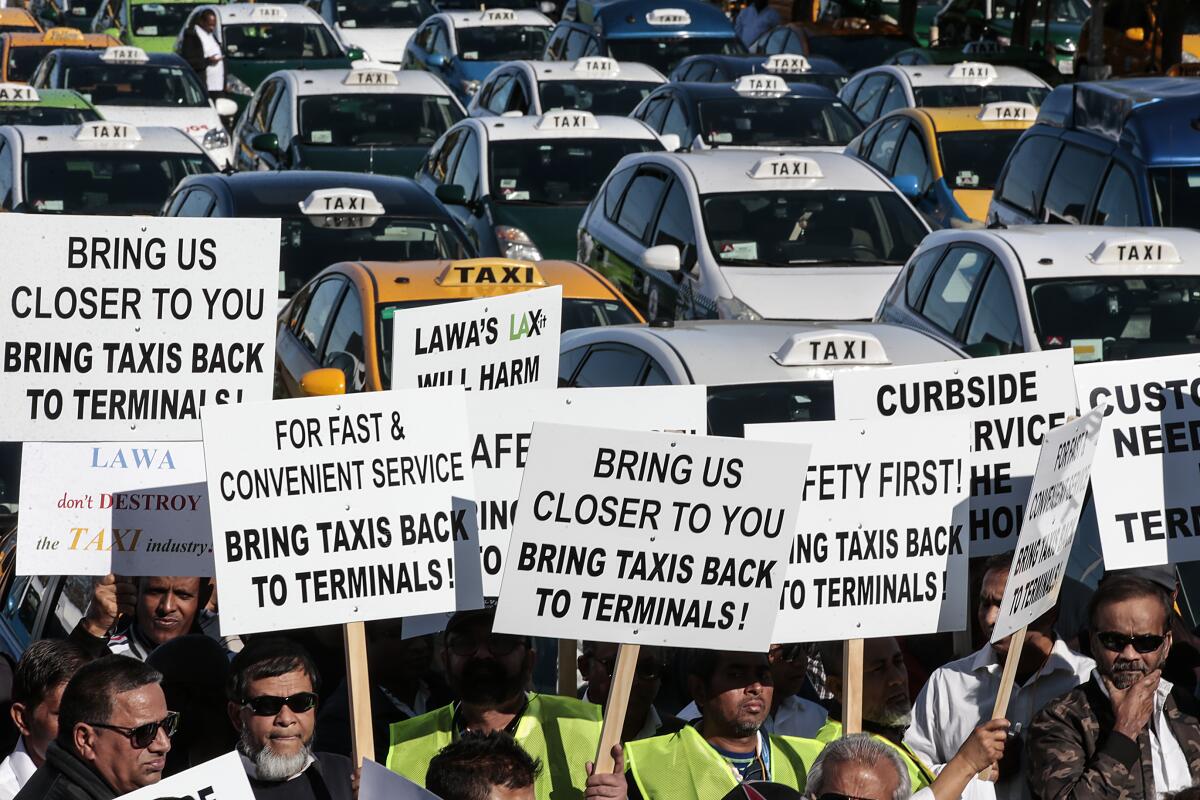
“This is our last chance to survive,” said Arman Zohrabyan, who has driven for United Taxi for 17 years, as he marched down the sidewalk on Century Boulevard.
Taxi ridership in Los Angeles fell 77% between 2013 and 2018, city officials said. Drivers have long complained that Uber and Lyft had an unfair advantage because they were not required to comply with local laws, including higher fares set by city officials.
The airport has become the most important source of revenue for drivers as taxi ridership has declined, said Leon Slomovic, a spokesman for the Taxi Workers Assn. of Los Angeles. Fares from LAX are more plentiful and typically more lucrative than those from hotel cab stands or street hails.
In general, each taxi driver is allowed to pick up passengers at LAX every fifth day, which yields more than half of their take-home pay, drivers said.
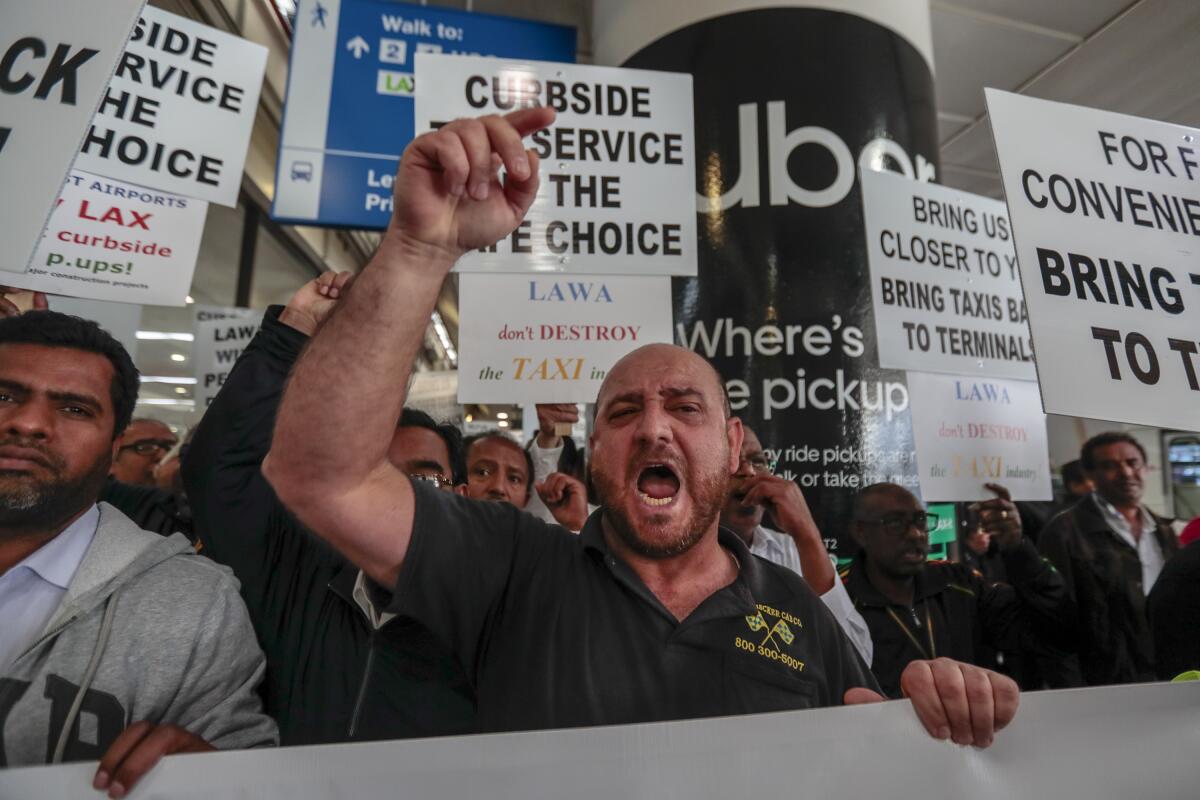
Travelers who are older, have disabilities or mobility impairments, or have a lot of luggage would be willing to pay slightly more to take a taxi from the curbside if the airport would just give them the option, said Jano Baghdanian, general manager of LA City Cab.
Some of those passengers are now paying more to take private town cars, including Uber Black, because they are still allowed to pick up at the curb, said Martin Manukyan, president of Yellow Cab. That system, he said, “benefits Uber and not us.”
Representatives from each taxi company have asked airport officials to reinstate curbside cab stands and allow taxis to operate in the new bus-only lanes for the LAXit shuttles.
“This is not fair competition,” said Mekoya Kubssa, who has driven a cab for United Independent Taxi for 26 years. If passengers are forced to take a shuttle to get a taxi, he said, they will choose the cheaper option: Uber.
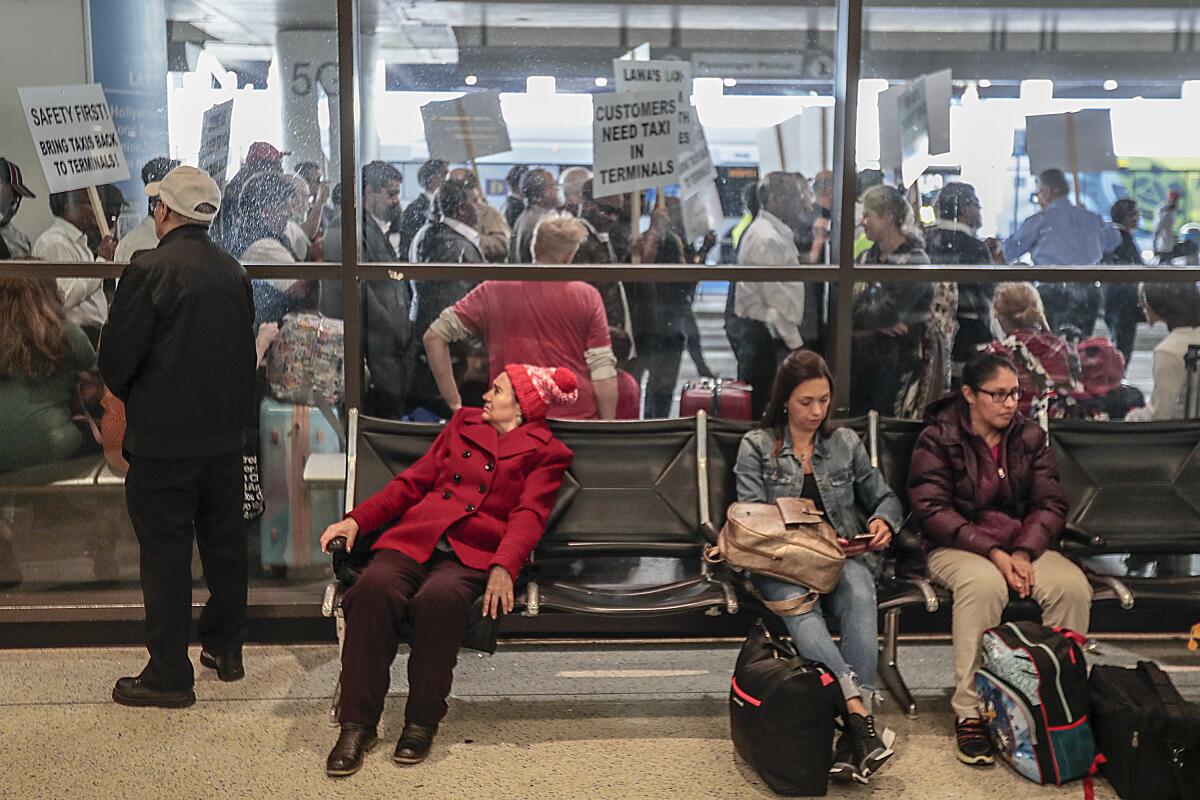
Taxis represent about 4% of the vehicle traffic picking up passengers at LAX, according to airport data. Uber and Lyft combined represent about 11%.
Offering cab stands next to the bus stops to the LAXit pickup area would relieve crowding on the shuttles during peak periods and drum up more business for taxi companies, Baghdanian said. If 50 people were waiting in line for a bus, he said, “half of those people would take a cab.”
The airport “simply does not have the curb space” to accommodate taxis at the curbside because major construction, including work on the people-mover train, will force major lane and curb closures, Los Angeles World Airports spokeswoman Becca Doten said Monday.
Officials with LAX will “continue to meet with all stakeholders, including taxi companies and drivers,” she said in an email.
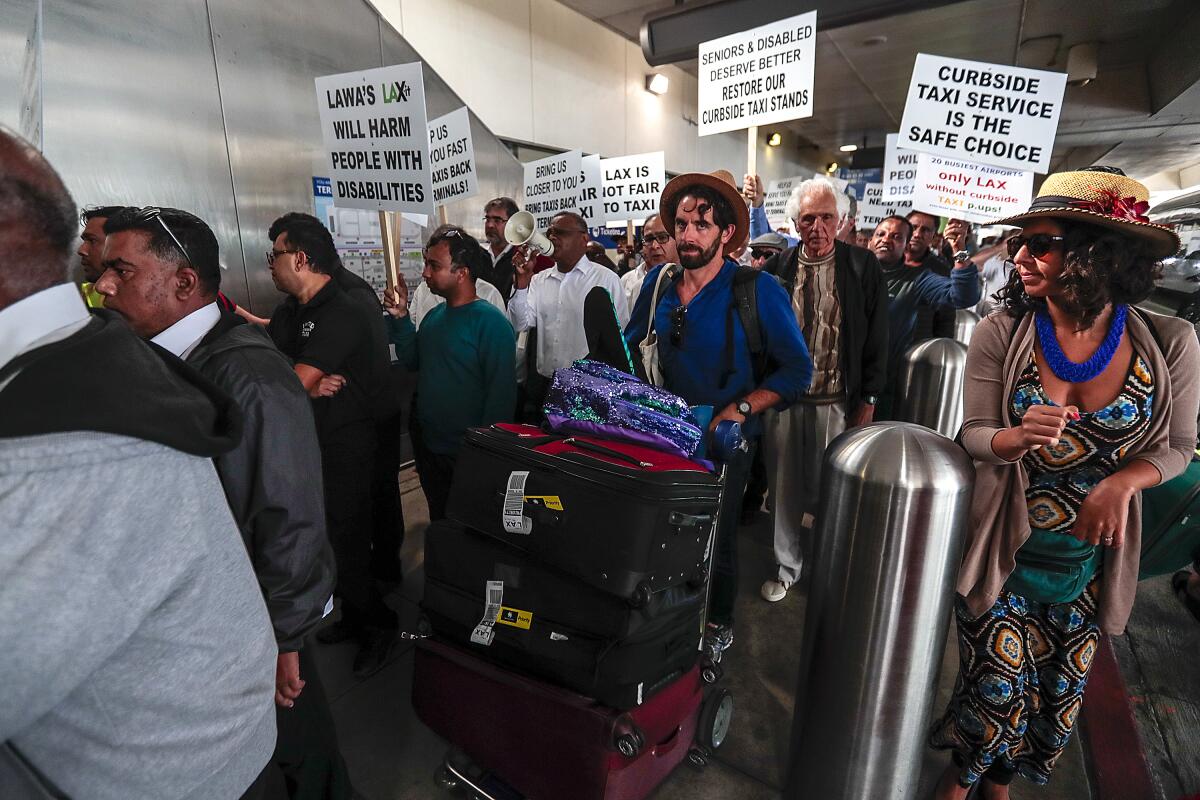
More to Read
Sign up for Essential California
The most important California stories and recommendations in your inbox every morning.
You may occasionally receive promotional content from the Los Angeles Times.

